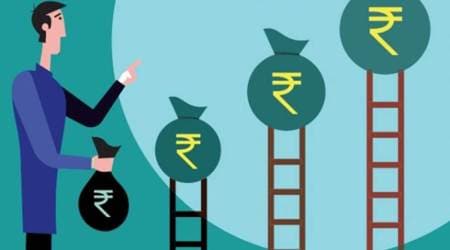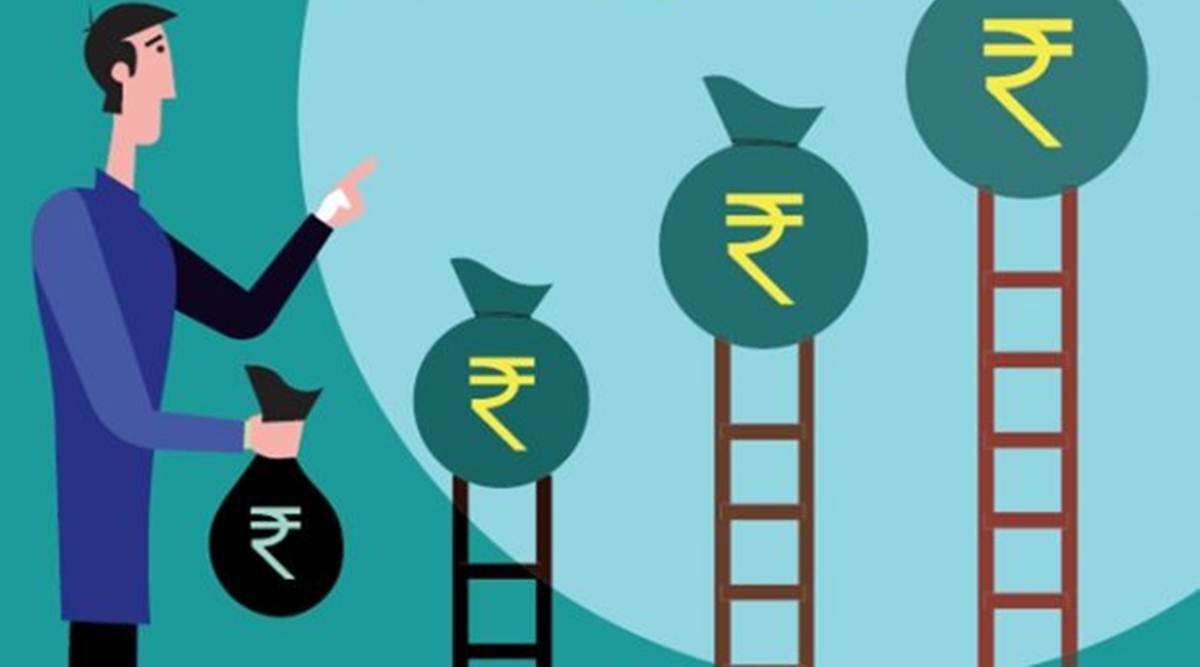From Coercion to Scam to China Nexus: The Growing Threat of Loan App Scams
When 22-year-old Zepto employee Sohail Shaikh recently needed money, a “Magicloan” ad on YouTube for instant micro-loans came to mind. On April 24, he ended up taking out a loan of Rs 6,000 from two applications, “Magicloan” and “cashmarket”.
“I had to pay them back on April 30. I would receive my salary on May 1, so I was thinking of returning it a day later. Their (loan applications) however started calling me on April 29th. I told them about the payment delay, but it didn’t matter – they were abusive,” Shaikh told The Indian Express.
His ordeal had just begun. “A day later, some of my colleagues and relatives called me to tell me that they had received a photo of my wife with obscene things scrawled on it. I was shocked how they could get his picture and their numbers. And then I realized they had access to all my phone data. I had to explain to everyone that I had taken out a small loan and that these people were loan officers. It was traumatic,” he said.
On April 14, a 24-year-old woman from Charkop in Mumbai filed an FIR at Kandivali Police Station (West), alleging that cyber crooks called her from 25 different mobile numbers and threatened her to defame her if she did not repay a loan, which she had never taken, and forced her to pay Rs 4.50 lakh. They also sent obscene messages about him to many people on his contact list, including family members and friends. Her cousin sister even received a WhatsApp message stating that her number and photo were of a sex worker.
The best of Express Premium
 Prime
Prime Prime
Prime Prime
Prime“These 15 to 20 days were the most horrible days of my life. The police asked me to turn off my phone, but scammers sent obscene messages to 150 people on my contact list, mostly family members. They only made WhatsApp calls. When my uncle tried to give them a normal call, an old woman from Karnataka took it. They were using his number for their WhatsApp,” she said.
Mumbai police filed 47 cases of loan application fraud between March and April, of which they were only able to solve one case. He had filed 42 such cases in the whole of last year, resolving 5 of them.
Although cases of loan application scams have been reported across the country, there have been cases in Maharashtra and Telangana where their victims have even been driven to suicide. At least 8 of these victims have committed suicide in Telangana in the last year and a half.
The modus operandi of these scammers is that they offer “hassle-free” micro-loans through online applications, which do not check a borrower’s creditworthiness or search for documents while immediately transferring money to his or her account. It is this “no questions asked” method of these apps compared to traditional lending institutions that seek rigorous verification and background checks that has made them popular among people.
Their popularity grew especially during the Covid pandemic when many people lost their livelihoods and were in desperate need of money to meet their daily expenses. However, according to several police and cyber experts, those seeking loans through these apps now include corporate employees looking for extra money at the end of a month or young people in need of money to buy virtual currency.
Cyber expert Ritesh Bhatia said that since the demand for microloans plummeted, there have been several instances where these operators have asked people for money even though they have just downloaded their apps. “In some cases, if you took out a loan once, they will ask you for more from another app. Also, on occasion, they ask for money once you download the app, because they now have access to your contacts. The application is developed in such a way that once downloaded, it gives loan companies full access to the data of the phone. It does not matter if you have not benefited from a loan of the app,” Bhatia said.
What many of those who are attracted by the ease of access to credit do not know or fail to check is the vagueness relating to the interest rates charged and the recovery mechanism. In some cases, when people read the interest rate on their loans at 0.8%, they forget it’s a daily rate, Bhatia said. “There have been cases where people have ended up paying up to 66% interest.”
A Mumbai cyber police officer said that even GST was deducted from the loan amount. “And within a week you start getting calls asking for these loans to be repaid,” he said. This is where the harassment of victims begins when recovery agents come into the picture.
An officer said that when people install these apps on their phones, they usually don’t realize that they are also giving them access to their phone’s data. “So when the person is unable to make the payment, debt collectors have access to the numbers of their family members, relatives, colleagues and friends. They call them claiming that they have been appointed guarantors of the loan. This is to put pressure on them to make sure the borrower makes the payment.
However, Bhatia said some recovery workers are now resorting to “dirty tricks”. They use nude photos or pornographic clips to transform the image of the borrower and then send it to the family members, relatives and friends of the victim.
It was such a murky operation that allegedly forced Malad-based imitation jewelry businessman Sandeep Koregaonkar, 38, to commit suicide on May 4 after discovering his altered photos had been sent to relatives, police said. His family said he did not take out any loans and just downloaded the apps.
🚨 Limited time offer | Express Premium with ad-lite for only Rs 2/day 👉🏽 Click here to subscribe 🚨
It was Koregaonkar’s suicide that made the Mumbai police realize the severe harassment involved in these cases. His preliminary investigations led them to some call centers, linked to such apps, operating mainly from Delhi and Noida, among other places across the country.
In another recent case of sexual harassment being investigated by Andheri Railway Police, 170 calls were made to a victim based in Dombivli. After she was unable to make the loan payment, her morphed video was sent to her cousin sister on WhatsApp, who then contacted the police. A 19-year-old man was arrested in Karnataka as his phone was used to send this obscene content. Police later learned that the fraudsters had used his number to activate their WhatsApp and that the loan app, owned by two Kerala businessmen, had outsourced their database of borrowers to a credit center. Delhi-based calls to retrieve loans for a fee.
The police also discovered that some of these micro-loan apps are “Chinese loan apps developed by Chinese nationals”. In such cases erupted across the country, it was found that the accused, after collecting money from the victims, would convert it into cryptocurrency and send it to China, a cyber officer said. police.
In several cases, victims end up taking money from one lending app to protect themselves from harassment from another app. In a case being investigated by the BKC Cyber Police Station in Mumbai, a senior executive of a company took out a total loan of Rs 1 lakh over 10 applications. Within days, she received 80 calls from Delhi, Noida and other places in states like Meghalaya and Andhra Pradesh. Also in her case, the scammers sent her obscene videos and threatened to defame her, forcing her to cough up Rs 12 lakh.
What made police investigations more difficult was that in most of these cases the scammers took “precautions” to cover their tracks. In the business executive’s case, when police tried to trace the account she was asked to make a payment to, they discovered it belonged to another borrower.
An independent director of the Fintech Association for Consumer Empowerment (FACE), Srinath Sridharan, said that for ordinary people, it is “very difficult” to distinguish between genuine RBI-affiliated lending apps and fraudulent ones. “RBI has made the rules so confusing that it’s confusing to tell the difference between authorized and unauthorized apps,” he said.
Sridharan said in his 2021 report that the RBI Digital Lending Task Force made several recommendations to tackle this threat, which however were not implemented. “The only solution is for RBI to carry out digital supervision of NBFCs to ensure that none of them are involved in lending through these unauthorized apps,” he added.
Recently, with these scams on the rise, Google issued stricter guidelines (see box) only allowing lending apps on its Play Store that are registered with the RBI. Bhatia, however, said it wouldn’t make much difference as the accused would create apps and put links on their websites and send them to their victims’ WhatsApp or Telegram accounts to be downloaded. The police as well as cyber experts have insisted on the need to raise awareness about these dodgy loan apps.


Comments are closed.